Films from the country "serbie", sorted by revenue

The Parade (2011)
, 1h52Directed by Srđan Dragojević
Origin Serbie
Genres Drama, Comedy, Comedy-drama
Themes Films about sexuality, LGBT-related films, LGBT-related films, LGBT-related film
Actors Nikola Kojo, Dejan Aćimović, Goran Navojec, Toni Mihajlovski, Radoslav Milenković, Mira Stupica
The film introduces a group of gay activists, trying to organize a pride parade in Belgrade. Among them Mirko Dedijer (Goran Jevtić), a struggling theater director who mostly makes a living by planning lavish and kitschy wedding ceremonies on the side. Organizing such a parade is no easy task in Serbia as evidenced by the violence at the 2001 parade attempt. Now, almost a decade later, the situation is not much better - nationalist and right wing groups pose just as much threat so despite repeated attempts through official channels, Mirko is getting nowhere since the police refuses to secure the event. Mirko's effeminate boyfriend Radmilo (Miloš Samolov) is a veterinarian - he is not nearly as political and is quite content keeping a low profile. Although the two try to live discreetly, both still experience various forms of abuse from the homophobic majority.
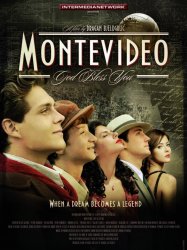
Montevideo, God Bless You! (2010)
, 2h20Directed by Dragan Bjelogrlić
Origin Serbie
Genres Drama, Adventure, Historical, Romance
Themes Sports films, Association football films
Actors Miloš Biković, Danina Jeftić, Petar Strugar, Branimir Brstina, Nebojša Ilić, Nikola Đuričko
Belgrade, Serbian and Yugoslav capital, circa 1930. The story follows eleven passionate, mostly anonymous but very talented soccer players and their journey from the cobblestone streets of impoverished Belgrade neighborhoods to the formation of the national team before the very first World Cup in faraway Uruguay. So far away that the country's capital, Montevideo, seems more a distant dream than a familiar reality. Named after the city where the inaugural World Cup was held, director Dragan Bjelogrlić's adaptation of journalist Vladimir Stanković's best-selling book centers on the relationship between the two top players: natural talent and poor boy Tirke (Miloš Biković) and playboy superstar Moša (Petar Strugar).

St. George Shoots the Dragon (2009)
, 2h30Directed by Srđan Dragojević
Origin Serbie
Genres Drama, War
Themes Political films
Actors Lazar Ristovski, Nataša Janjić, Bora Todorović, Dragan Nikolić, Milena Dravić, Branislav Lečić
The movie starts with the Kingdom of Serbia, as part of the Balkan League, battling the remaining Turkish occupiers during the First Balkan War in 1912 and ends with the outbreak of World War I in 1914 and the crucial Battle of Cer, the first allied victory in World War I. It is largely set in and around a small village by the Sava river at Serbia's border with Austria-Hungary.
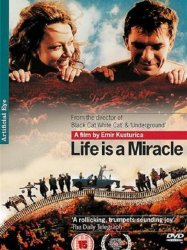
Life Is a Miracle (2004)
, 2h32Directed by Emir Kusturica
Origin Serbie
Genres Drama, Comedy, Comedy-drama, Romance
Themes Transport films, Rail transport films, Political films
Actors Slavko Stimac, Mirjana Karanović, Vuk Kostić, Aleksandar Berček, Nikola Kojo, Vanessa Glodjo
The film opens just as construction has been completed on a railway connecting a mountainous regions of eastern Bosnia and western Serbia in 1992. Luka, a Serbian engineer, has moved to Bosnia from Belgrade with his mentally unstable wife, Jadranka, and his football-playing son, Miloš, to run a railway station and act as caretaker. Luka is at work preparing the opening of the railway while Miloš attempts to become a professional footballer with the Partizan team. Utterly engrossed in his work and blinded by natural optimism, Luka remains deaf to the increasingly persistent rumblings of war, which has broken out in Croatia and threatens to spread.
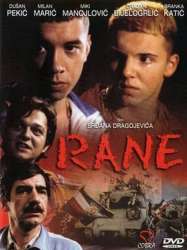
The Wounds (1998)
, 1h43Directed by Srđan Dragojević
Origin Serbie
Genres Drama, War, Thriller, Comedy, Action, Crime
Themes Films about writers, Films about journalists, Medical-themed films, Films about drugs
Actors Branka Katić, Milan Marić, Dragan Bjelogrlić, Miki Manojlović, Gorica Popović, Nikola Kojo
Rane's opening sequence announces it as being "dedicated to the generations born after Tito". The film follows the fate of two boys, Pinki and Švaba, growing up in Novi Beograd during the Yugoslav Wars period (1991–96).
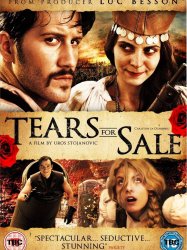
Tears for Sale (2008)
, 1h26Origin Serbie
Genres Drama, Comedy, Fantasy, Historical
Actors Katarina Radivojević, Sonja Kolačarić, Olivera Katarina, Stefan Kapicic, Nenad Jezdić, Nada Šargin
The movie's plot is set during the 1920s in post-World War I Serbia. Rebuilding after a gruelling armed conflict in which it lost a sizable part of its young male population, the nation is struggling to recover demographically. The situation is especially visible in certain rural parts where this shortage of men threatens to extinguish life completely.
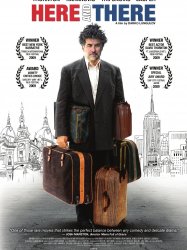
Here and There (2009)
, 1h25Directed by Darko Lungulov
Origin Serbie
Genres Drama, Comedy, Comedy-drama, Romance
Actors David Thornton, Branislav Trifunović, Cyndi Lauper, Mirjana Karanović, Goran Radaković
Here and There follows two interconnected stories on two different continents. Robert (Thornton), a depressed New Yorker, tries to make quick cash and ends up in Serbia, where instead of money he finds his soul. At the same time, a young Serbian immigrant, Branko (Trifunović), struggles in an unforgiving New York, desperately trying to bring his girlfriend from Serbia to the United States. Mirijana Karanović plays Branko's mother.

A Serbian Film (2010)
, 1h44Origin Serbie
Genres Drama, Erotic, Thriller, Horror, Crime
Themes Assassinat, Films about films, Films about children, Films about families, Medical-themed films, Psychologie, Films about sexuality, Snuff films in fiction, Films about suicide, Films about television, Rape in fiction, Erotic films, Films about pedophilia, Films about pornography, Rape and revenge films, Films about psychiatry, Erotic thriller films
Actors Sergej Trifunović, Srđan Todorović
Semi-retired porn star Miloš (Srđan Todorović) lives with his wife, Marija (Jelena Gavrilović), and six-year-old son, Petar (Luka Mijatović). His brother, Marko (Slobodan Beštić), a corrupt police officer, is attracted to Marija. Marija is curious about her husband's past and is concerned about the family's income. Lejla (Katarina Žutić), a former co-star, offers Miloš a starring role in an art film directed by Vukmir (Sergej Trifunović), an independent pornographer, who wishes to cast Miloš for his powerful erection. Having already caught Petar watching one of his films and unaware of the details of Vukmir's film, Miloš is hesitant to participate and continue his career, but accepts to secure his family's financial future. While meeting Vukmir, Miloš passes a bald man and his entourage, regarding them warily.
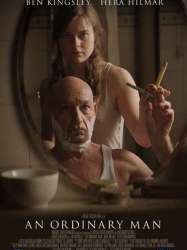
An Ordinary Man (2017)
, 1h30Directed by Brad Silberling
Origin Serbie
Genres Drama, War, Action
Actors Ben Kingsley, Hera Hilmar, Peter Serafinowicz
Le film retrace la fuite d'un criminel de guerre serbe, calquée en partie sur celles de Slobodan Milosevic et de Ratko Mladic, connu sous le nom de « boucher de Bosnie » ou boucher des Balkans.
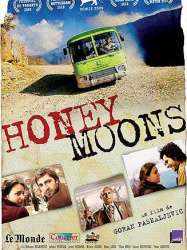
Honeymoons (2009)
Directed by Goran Paskaljević
Origin Serbie
Genres Drama
Actors Lazar Ristovski, Mira Banjac, Ljuma Penov
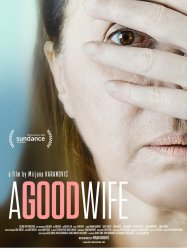
A Good Wife (2016)
Directed by Mirjana Karanović
Origin Serbie
Genres Drama
Actors Mirjana Karanović, Boris Isaković, Marko Nikolić, Bojan Navojec, Ksenija Marinković, Jasna Đuričić
Milena, une mère de famille bourgeoise mène une vie confortable dans un faubourg aisé de Belgrade. Elle prend soin de son apparence, cuisine avec application, reçoit en bonne maîtresse de maison, chante dans une chorale et fait l’amour avec son mari. Le couple a une vie sociale bien remplie et retrouve souvent un groupe d’amis de longue date. Mais des éléments troublants commencent à pénétrer l’inconscient de Milena et vont fissurer son univers bien rangé. Un jour, alors qu’elle fait le ménage, elle tombe sur une cassette vidéo où elle découvre que son mari est coupable d’effroyables crimes de guerre.
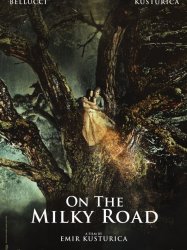
On the Milky Road (2016)
, 2h5Directed by Emir Kusturica
Origin Serbie
Genres Drama, Comedy
Actors Emir Kusturica, Monica Bellucci, Sergej Trifunović, Miki Manojlović, Sloboda Mićalović, Bajram Severdžan
Sous le feu des balles, Kosta, un laitier, traverse la ligne de front chaque jour au péril de sa vie pour livrer ses précieux vivres aux soldats. Sur le point d'épouser sa compagne Milena, il fait la connaissance de Nevesta, une Italienne qui est la future épouse du frère de Milena et qui est poursuivie par un général anglais jaloux en quête de vengeance. Kosta tombe amoureux de Nevesta. Le jour du mariage, des troupes d’élite massacrent les participants avant de se mettre en chasse des deux amoureux clandestins...

Enclave (2015)
, 1h32Origin Serbie
Genres Drama, War
Actors Nebojša Glogovac, Anica Dobra, Miodrag Krivokapić, Goran Radaković, Meto Jovanovski, Nenad Jezdić
Dans une enclave serbe au Kosovo, Nenad, 10 ans, vit avec Vojislav, son père, et Milutin, son grand-père malade.
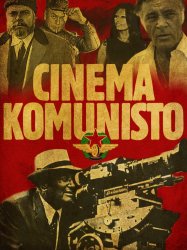 , 1h41
, 1h41Origin Serbie
Genres Documentary
Themes Films about films, Documentary films about the film industry
Actors Veljko Despotović, Bata Živojinović, Veljko Bulajić
À travers le témoignage de Leka Konstantinovic, projectionniste personnel du président Josip Broz Tito durant 32 ans, l'histoire d'une nation disparue, la Yougoslavie. Tito aimait le cinéma et lui accordait une grande importance. Dès 1945, il créa, à Belgrade, les studios Avala censés devenir le Hollywood de l'Europe de l'Est. Mila Turajlic, la réalisatrice, a accompli un travail titanesque en rassemblant un nombre remarquable d'archives inédites et notamment des séquences de films yougoslaves jusque-là inconnus hors de son pays.
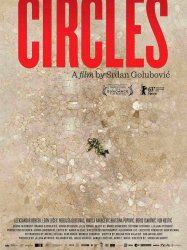
Circles (2013)
, 1h52Directed by Srdan Golubović
Origin Serbie
Genres Drama, War
Themes Political films
Actors Vuk Kostić, Aleksandar Berček, Nebojša Glogovac, Leon Lučev, Nikola Rakočević, Emir Hadžihafizbegović
En 1993, Haris, un musulman, est agressé par trois soldats serbes, sous les yeux d'un quatrième, Marko, dont l'intervention conduit à sa propre mort.
 Connection
Connection